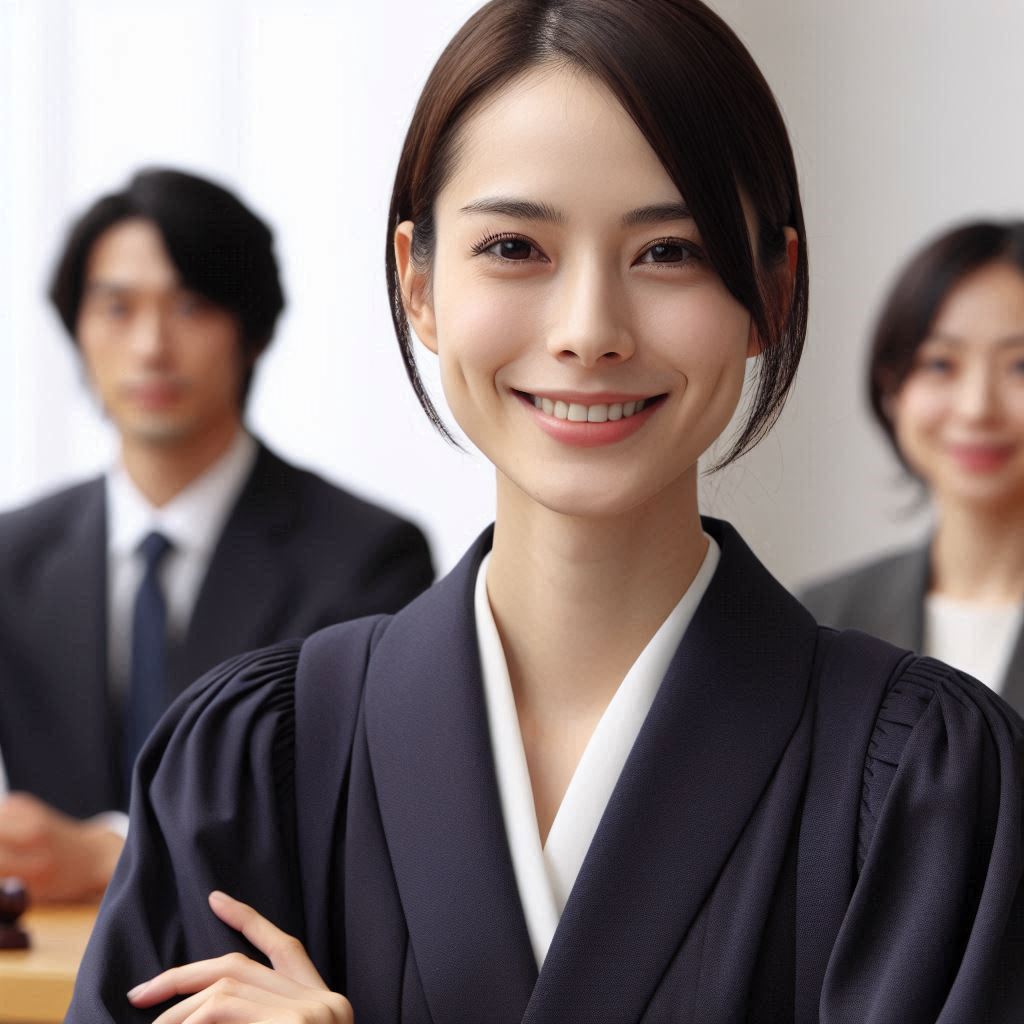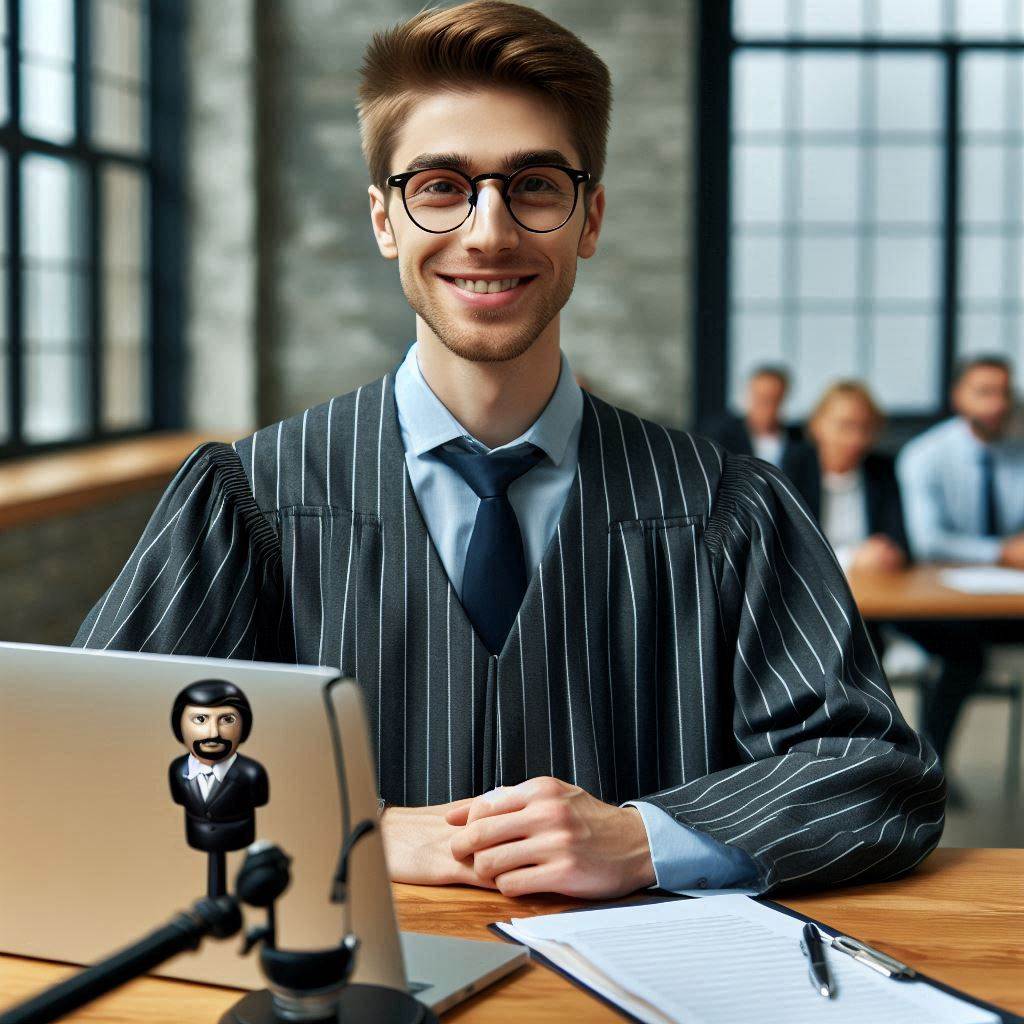Introduction
A professional jury consultant plays a crucial role in the legal system by providing insights into juror behavior and attitudes.
In this blog post, we will delve into a day in the life of a professional jury consultant, exploring their tasks, challenges, and the impact they have on court cases.
Before heading to court, a jury consultant reviews case materials and jury profiles.
They create strategies for jury selection and develop persuasive communication techniques.
The jury consultant observes the voir dire process, taking notes on potential jurors’ body language, responses, and social dynamics.
They provide feedback to the legal team on potential biases or concerns.
After jury selection, the consultant analyzes juror responses to witness testimonies and evidence.
They identify key factors that may influence juror decision-making and provide recommendations for trial strategies.
Throughout the day, the consultant meets with clients to discuss case progress and jury dynamics.
They offer guidance on jury perceptions and assist in developing effective courtroom presentations.
The consultant helps attorneys craft persuasive arguments and visuals to resonate with the jury.
They anticipate potential challenges and work to strengthen the client’s case narrative.
After the trial concludes, the jury consultant conducts post-trial evaluations to assess the effectiveness of trial strategies.
They gather feedback from jurors and evaluate the impact of their recommendations on the case outcome.
A professional jury consultant plays a vital role in shaping trial outcomes by providing valuable insights and strategies to legal teams.
Their expertise in understanding juror behavior and attitudes is instrumental in building successful case narratives.
Education and Training
The educational background required to become a jury consultant
To become a jury consultant, you need a strong educational background.
Typically, a bachelor’s degree in psychology, sociology, or law is essential. Advanced degrees, such as a master’s or PhD, enhance your credibility.
These programs equip you with critical skills in behavioral analysis and legal procedures.
Specific certifications or qualifications needed
Certifications also play a crucial role in this profession.
Transform Your Career Today
Unlock a personalized career strategy that drives real results. Get tailored advice and a roadmap designed just for you.
Start NowFor instance, becoming a certified trial consultant through the American Society of Trial Consultants (ASTC) adds significant value.
This certification demonstrates your expertise and commitment to ethical practices.
Furthermore, specialized training in areas like forensic psychology or criminology can be advantageous.
How ongoing training is essential in this profession
Ongoing training is vital in this ever-evolving field. Regularly attending workshops and conferences keeps you updated on the latest methodologies.
Continuing education helps you stay abreast of new legal precedents and psychological research.
Additionally, joining professional organizations like the ASTC offers networking opportunities and access to industry resources.
Staying current with technology is also crucial. Jury consultants often use sophisticated software for data analysis and presentation.
Therefore, proficiency in these tools is necessary. Regularly upgrading your technical skills ensures you remain competitive in the field.
In essence, a robust educational background, relevant certifications, and ongoing training are essential for a successful career as a jury consultant.
These elements not only enhance your skills but also ensure you provide the best possible service to your clients.
Read: How Forensic Accountants Assist Attorneys
Daily Responsibilities
Typical tasks a jury consultant may undertake in a day
A professional jury consultant begins their day by reviewing case details. They examine the case’s background, objectives, and key issues.
They prepare for meetings with legal teams, ensuring they understand the client’s needs and goals.
Also, they analyze potential jurors’ backgrounds, focusing on demographics and psychographics to identify biases and preferences.
They also review previous trial outcomes to predict juror behavior.
Throughout the day, they attend court proceedings to observe potential jurors. They take notes on jurors’ reactions and body language.
They use this information to assess each juror’s suitability for the case. Also, they may conduct mock trials or focus groups to test arguments and witness effectiveness.
They also develop questionnaires for voir dire, helping attorneys ask the right questions to uncover biases.
How they work with legal teams to select jurors for trials
Jury consultants collaborate closely with legal teams to select the best jurors. They meet with attorneys to discuss case strategy and juror profiles.
They provide insights into which types of jurors may be sympathetic or hostile to their case. Also, they use their expertise to recommend strategies for jury selection.
Transform Your Career Today
Unlock a personalized career strategy that drives real results. Get tailored advice and a roadmap designed just for you.
Start NowDuring voir dire, they assist attorneys by suggesting questions to reveal biases and predispositions.
They observe jurors’ responses, paying attention to verbal and non-verbal cues. They help attorneys challenge unsuitable jurors, ensuring an impartial jury.
Also, they provide real-time feedback during jury selection, refining their recommendations as new information emerges.
Research and analysis involved in their work
Research and analysis form the backbone of a jury consultant’s work. They analyze demographic data to understand the community’s composition.
They study psychological theories to predict juror behavior and decision-making. Also, they review social science research on jury dynamics and group behavior.
They conduct surveys to gather data on public opinion and attitudes related to the case. They use statistical methods to identify patterns and correlations.
Also, they analyze mock trial results to refine their strategies. Their research helps them develop profiles of ideal jurors and anticipate challenges during the trial.
Their insights guide the legal team in presenting their case effectively, aiming for a favorable verdict.
Read: Forensic Accounting and Legal Compliance
Case Study
Real-life example of a case where a jury consultant played a crucial role
Let’s delve into a real-life case where a jury consultant played a crucial role in shaping the outcome of the trial and impacting the legal proceedings.
The Case of Smith vs. Johnson
- Background: The case involved a high-profile corporate dispute between two major tech companies.
- Jury Selection: The consultant conducted thorough research to identify potential biases and preferences of the jury pool.
- Data Analysis: They analyzed demographic information and past experiences to predict juror attitudes.
- Mock Trials: The consultant organized mock trials to simulate potential outcomes and gauge juror reactions.
- Feedback Interpretation: Based on feedback from mock trials, adjustments were made to trial strategy and arguments.
- Witness Preparation: The consultant helped prepare witnesses to present their testimonies effectively.
- Visual Aids: They recommended the use of compelling visual aids to enhance juror understanding.
Impact of their work on the legal proceedings
As a result of the jury consultant’s efforts:
- The legal team had a deep understanding of the jury’s mindset and was able to tailor their arguments accordingly.
- Witness testimony was more impactful and persuasive due to effective preparation and communication strategies.
- The visual aids helped simplify complex information and engage jurors on a visual level.
- The trial outcome favored the defendant, with the jury ruling in their favor.
- The consultant’s expertise significantly influenced the outcome of the trial and shaped the legal proceedings in a favorable direction.
In fact, the case of Smith vs. Johnson exemplifies the critical role that a jury consultant plays in legal proceedings.
Their expertise and strategic guidance can make a significant difference in the outcome of a trial and ultimately impact the course of justice.
Read: Common Myths About Forensic Accounting

Role in Jury Selection
The process of jury selection and the consultant’s role in it
Jury selection, known as voir dire, involves interviewing potential jurors to identify biases. The consultant aids attorneys in crafting questions.
They focus on uncovering biases that may impact the case. Consultants use psychological insights to understand jurors’ attitudes and beliefs.
They analyze responses to gauge suitability for the jury. Their role is crucial in building a jury favorable to their client.
Strategies used to ensure a fair and impartial jury
Consultants employ several strategies to ensure impartiality. They scrutinize jurors’ backgrounds and social media for biases.
They use mock trials to simulate courtroom scenarios. This helps in identifying potential prejudices among jurors.
Consultants also observe body language and verbal cues during questioning.
Transform Your Career Today
Unlock a personalized career strategy that drives real results. Get tailored advice and a roadmap designed just for you.
Start NowThese strategies help reveal hidden biases that may affect the case. Ensuring a fair jury is their primary goal.
How they analyze juror profiles to make informed decisions
Analyzing juror profiles involves assessing various factors. Consultants look at demographics, occupation, and past experiences.
They consider how these factors may influence jurors’ views. Consultants use psychological profiling to predict jurors’ decision-making processes.
They also assess jurors’ responses during voir dire. This comprehensive analysis helps in forming an ideal jury.
Consultants’ expertise in profiling is essential for informed decision-making.
Jury consultants play a vital role in the jury selection process. They use their skills to ensure a fair and impartial jury.
By analyzing juror profiles and employing strategic questioning, they help build a jury that can deliver an unbiased verdict.
Their expertise is crucial in achieving justice in the courtroom.
Read: Typical Salary Range for Jury Consultants in the USA
Gain More Insights: Balancing Work and Life as a Contract Manager
Learn More: How to Balance Work and Life as a Legal Consultant
Challenges Faced
Identifying Common Challenges
One of the most common challenges faced by jury consultants is the difficulty in accurately identifying bias among potential jurors.
Bias can manifest in various forms, such as racial, gender, or socioeconomic bias, and it can significantly impact the outcome of a trial.
Jury consultants must carefully assess each potential juror to determine their biases and how it may influence their decision-making during the trial.
Navigating Bias and Preconceptions
Jury consultants must also navigate through preconceptions and stereotypes that potential jurors may hold.
These preconceptions can be based on personal experiences, media influences, or societal norms.
Consultants must find ways to address and challenge these preconceptions during jury selection to ensure a fair and impartial trial.
This requires effective communication and the ability to educate potential jurors on the importance of setting aside personal biases.
Addressing Ethical Dilemmas
Another challenge that jury consultants may face is ethical dilemmas that arise during the jury selection process.
Consultants must uphold ethical standards and ensure that their actions do not compromise the integrity of the trial.
Transform Your Career Today
Unlock a personalized career strategy that drives real results. Get tailored advice and a roadmap designed just for you.
Start NowThis may involve turning down certain clients or refusing to engage in unethical practices that could unfairly sway the outcome of the trial.
Consultants must constantly evaluate their actions and decisions to uphold the principles of fairness and justice in the legal system.
Overall, jury consultants face a myriad of challenges in their profession, from identifying and managing biases to addressing ethical dilemmas.
It is essential for consultants to approach their work with integrity, professionalism, and a commitment to ensuring a fair and impartial trial for all parties involved.
Technology and Tools
As we continue to evolve in the digital age, the role of technology in modern jury consulting has become increasingly prominent.
Jury consultants now have access to a wide range of tools and technologies that enable them to perform their jobs more effectively and efficiently.
Role of Technology in Modern Jury Consulting
Technology plays a crucial role in modern jury consulting by providing consultants with the tools they need to analyze data, conduct simulations, and make informed decisions that can ultimately impact the outcome of a trial.
With the help of technology, jury consultants are able to gain valuable insights into juror behavior and preferences, which can be used to craft more persuasive arguments in court.
Tools like Data Analytics and Simulations
One of the key tools that jury consultants use is data analytics.
By analyzing vast amounts of data related to juror demographics, attitudes, and past behavior, consultants can identify patterns and trends that can help them better understand how jurors are likely to respond to different arguments and evidence presented in court.
Another important tool in the arsenal of jury consultants is simulations.
By creating mock trial scenarios using sophisticated software, consultants can simulate the courtroom experience and test different strategies to see how jurors might react.
This allows consultants to fine-tune their approach and develop more effective trial strategies.
Benefits of Using Technology in Jury Consulting
- Increased efficiency and productivity
- Ability to analyze large datasets quickly and accurately
- Enhanced ability to predict juror behavior and preferences
- Improved trial preparation and strategy development
- Greater confidence in decision-making based on data-driven insights
Limitations of Using Technology in Jury Consulting
- Over-reliance on technology can lead to a lack of human judgment and intuition
- Technology may not always capture the full complexity of human behavior and decision-making processes
- Cost of acquiring and maintaining technology tools can be prohibitive for some consultants
- Risk of data breaches and security issues when handling sensitive juror information
- Need for ongoing training and education to stay current with rapidly evolving technologies
In a nutshell, while technology has undeniably transformed the field of jury consulting, it is important for consultants to strike a balance between leveraging the benefits of technology and recognizing its limitations.
By using technology judiciously and in conjunction with their expertise and experience, jury consultants can continue to provide valuable insights and support to attorneys and clients in the courtroom.
Conclusion
Being a professional jury consultant entails conducting research, analyzing data, and advising legal teams.
Their role is crucial in assisting attorneys in selecting unbiased jurors and shaping trial strategies.
Jury consultants play a vital role in ensuring a fair and impartial trial by providing valuable insights into juror behavior and attitudes.
They help attorneys navigate the complexities of human psychology and decision-making, ultimately improving their chances of achieving a favorable outcome for their clients.
For those interested in the legal profession or psychology, exploring the world of jury consulting can be a fascinating and rewarding career path.
Transform Your Career Today
Unlock a personalized career strategy that drives real results. Get tailored advice and a roadmap designed just for you.
Start NowBy understanding the significance of jury consultants in the legal system, we can appreciate the meticulous work they do behind the scenes to uphold justice and fairness in our courts.




